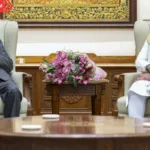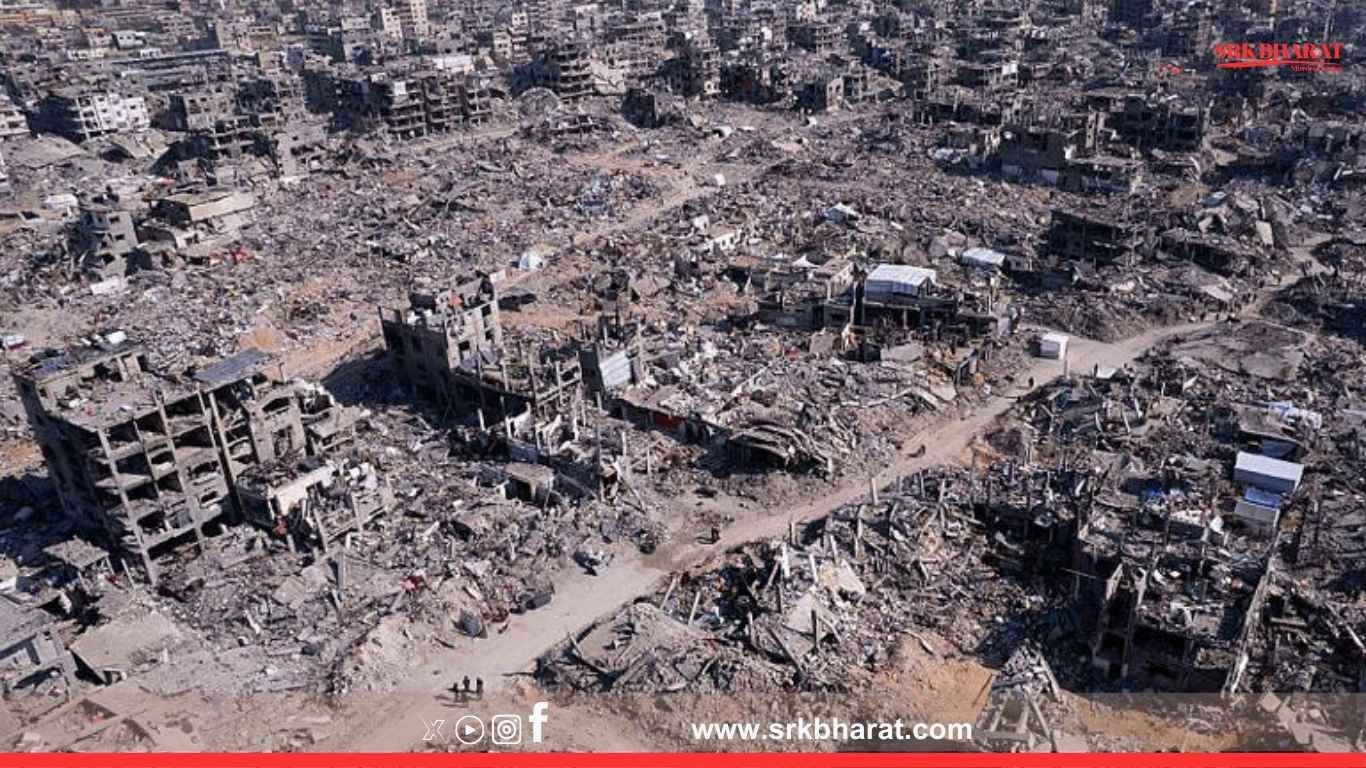In a development that could reshape the humanitarian and geopolitical landscape of the Middle East and East Africa, Israel is reportedly in discussions with South Sudan to explore the possibility of resettling a section of Palestinians from Gaza. Multiple diplomatic and security sources suggest that preliminary talks have been initiated to assess the feasibility, logistics, and political implications of such a move.
Background to the Resettlement Discussions
The ongoing conflict in Gaza, coupled with Israel’s security concerns and repeated escalations, has brought renewed focus on long-term solutions for displaced Palestinians. According to sources familiar with the matter, Israel has been looking at third-country resettlement options for a portion of the population, particularly those without direct family ties in the West Bank or Israel.
South Sudan, the world’s youngest nation, has been identified as a potential partner due to its diplomatic openness toward Israel, agricultural potential, and need for foreign investments and skilled labour.
Potential Agreement Scope and Challenges
Although no formal agreement has yet been signed, the discussions reportedly cover several critical aspects:
| Key Area of Negotiation | Possible Provisions | Potential Challenges |
|---|---|---|
| Population Size | Initially 5,000–10,000 individuals | Logistical capacity, infrastructure limitations |
| Legal Status | Temporary residency with eventual citizenship pathways | National laws, integration policies |
| Funding Mechanism | Israeli financial aid and international donor contributions | Ensuring sustained funding, transparency |
| Infrastructure Support | Housing, healthcare, and schooling facilities | South Sudan’s limited public service capacity |
| Security Arrangements | Joint Israel–South Sudan monitoring | Local acceptance, safety in volatile regions |
Israel’s Strategic Motivation
Israeli policymakers are reportedly motivated by three main factors:
- Reducing Population Density in Gaza – To lower security risks and ease economic pressure in the territory.
- Diplomatic Diversification – Strengthening ties with African nations to counter regional isolation.
- International Optics – Presenting resettlement as a humanitarian gesture to international observers, despite potential criticism.
An Israeli official, speaking anonymously, commented:
“The aim is to create an alternative pathway for those willing to start a new life outside the cycle of conflict. However, any decision will be voluntary and in line with international standards.”
South Sudan’s Perspective
South Sudanese officials have shown interest in the talks, viewing the proposal as an opportunity to secure international aid, foreign investment, and skilled labour that could contribute to national development.
However, analysts warn that South Sudan’s own challenges — including internal conflicts, fragile governance, and limited infrastructure — may complicate the integration of thousands of new arrivals.
Local opinion is reportedly divided, with some leaders seeing the plan as a symbol of South Sudan’s growing diplomatic influence, while others fear it may import new tensions into an already volatile environment.
International Reaction and Legal Concerns
The proposal is likely to draw mixed reactions from the global community:
- Supporters may argue it offers displaced Palestinians a chance for a more stable life, away from the ongoing violence in Gaza.
- Critics could label it as an attempt to engineer demographic changes in Gaza and circumvent the political resolution of the Israeli–Palestinian conflict.
International law experts point out that any resettlement must adhere to UN Refugee Convention principles, including voluntariness, informed consent, and protection from refoulement.
Humanitarian Implications
If implemented, this resettlement would require a multi-agency humanitarian effort involving:
- UNHCR and other refugee agencies to oversee legal compliance.
- Non-governmental organisations to manage relocation logistics, language training, and cultural integration.
- Health agencies to address medical needs, especially given Gaza’s recent war-related health crises.
| Humanitarian Needs for Successful Resettlement | Description |
|---|---|
| Housing Infrastructure | Adequate, climate-appropriate housing in urban and rural zones |
| Employment Opportunities | Integration into agriculture, construction, and trade sectors |
| Education Access | Schools for children and vocational training for adults |
| Healthcare Facilities | Accessible clinics and hospitals, especially for trauma care |
| Social Integration Programs | Cultural exchange and language learning initiatives |
Geopolitical Ripple Effects
The talks with South Sudan could influence Israel’s broader regional diplomacy. Improved ties with African nations have been part of Israel’s foreign policy strategy, as seen in renewed relations with countries like Chad and Morocco.
For South Sudan, alignment with Israel could attract Western aid and investment but might also draw criticism from nations opposed to Israeli policies toward Palestinians.
Moreover, Palestinian political factions, including Hamas and the Palestinian Authority, are expected to oppose the plan, viewing it as a fragmentation of the Palestinian national cause.
What Lies Ahead
Diplomatic insiders say that the next three to six months will be crucial in determining whether the talks progress into a binding agreement. Factors that could influence the outcome include:
- The humanitarian situation in Gaza and international pressure on Israel.
- South Sudan’s domestic political stability.
- Willingness of Palestinians to volunteer for relocation.
- Commitment of financial resources by donor nations.
If the proposal moves forward, a pilot relocation of a few hundred individuals could be initiated before expanding to larger numbers.
Balancing Opportunity and Risk
While the potential deal may be presented as a win-win solution, its success would depend on addressing security, economic, and social integration challenges on both sides.
Given the sensitivities surrounding the Israeli–Palestinian conflict, this proposal will likely remain one of the most closely watched diplomatic initiatives of the year.
Disclaimer: This article is based on information from diplomatic sources, regional analysts, and publicly available reports. The situation is evolving, and details may change as negotiations progress. The content is intended for informational purposes only and does not constitute political or legal advice.












перепланировки квартир soglasovanie-pereplanirovki-kvartiry3.ru .
стоимость гидроизоляции подвала стоимость гидроизоляции подвала .
торкретирование стен торкретирование стен .
нарколог психолог http://www.narkologicheskaya-klinika-23.ru/ .
1xbetgiri? http://www.1xbet-giris-4.com .
усиление ссылок переходами https://www.optimizaciya-i-seo-prodvizhenie-sajtov-moskva-1.ru .
статьи про seo статьи про seo .
digital маркетинг блог http://statyi-o-marketinge6.ru .
продвижение сайтов во франции продвижение сайтов во франции .
маркетинговые стратегии статьи маркетинговые стратегии статьи .
перепланировка комнаты http://www.soglasovanie-pereplanirovki-1.ru/ .
surewin casino malaysia http://surewin-online.com .
icebetcasino icebetcasino .
surewin login http://surewin-online.com/ .
beep beep kasino https://beepbeepcasino-online.com/ .
valor casino login valor casino login .
heaps of wins casino login australia heaps of wins casino login australia .
курс seo kursy-seo-12.ru .
goliath casino bonus goliath-casino.com .
icebetcasino icebetcasino .
IT перевод в бюро переводов Перевод и Право telegra.ph/Oshibka-lokalizacii-pochemu-vash-IT-produkt-ne-ponimayut-za-granicej-11-09 .
aeroplane money game http://www.aviator-game-predict.com .
заказать курсовую работу заказать курсовую работу .
metatrader5 download https://www.metatrader-5-downloads.com .
mt5 mac download https://metatrader-5-mac.com .
сколько стоит сделать курсовую работу на заказ сколько стоит сделать курсовую работу на заказ .
электрокарнизы для штор цена http://www.prokarniz36.ru .
оценка техники после затопления http://www.ekspertiza-zaliva-kvartiry-5.ru .
электрокарнизы для штор купить http://www.elektrokarniz2.ru/ .
официальный сайт 1win скачать http://1win12043.ru
карниз электро http://elektrokarniz98.ru .
электрические рулонные жалюзи rulonnye-shtory-s-elektroprivodom499.ru .
пин ап настройки профиля https://pinup5009.ru
пин ап новый домен https://www.pinup5010.ru
pin up hisobni to‘ldirish pin up hisobni to‘ldirish
pin up app uz http://pinup5012.ru/
pin up bonus kodu pinup5013.ru
pin up akkaunt yaratish pin up akkaunt yaratish
казино 1win скачать http://1win5522.ru